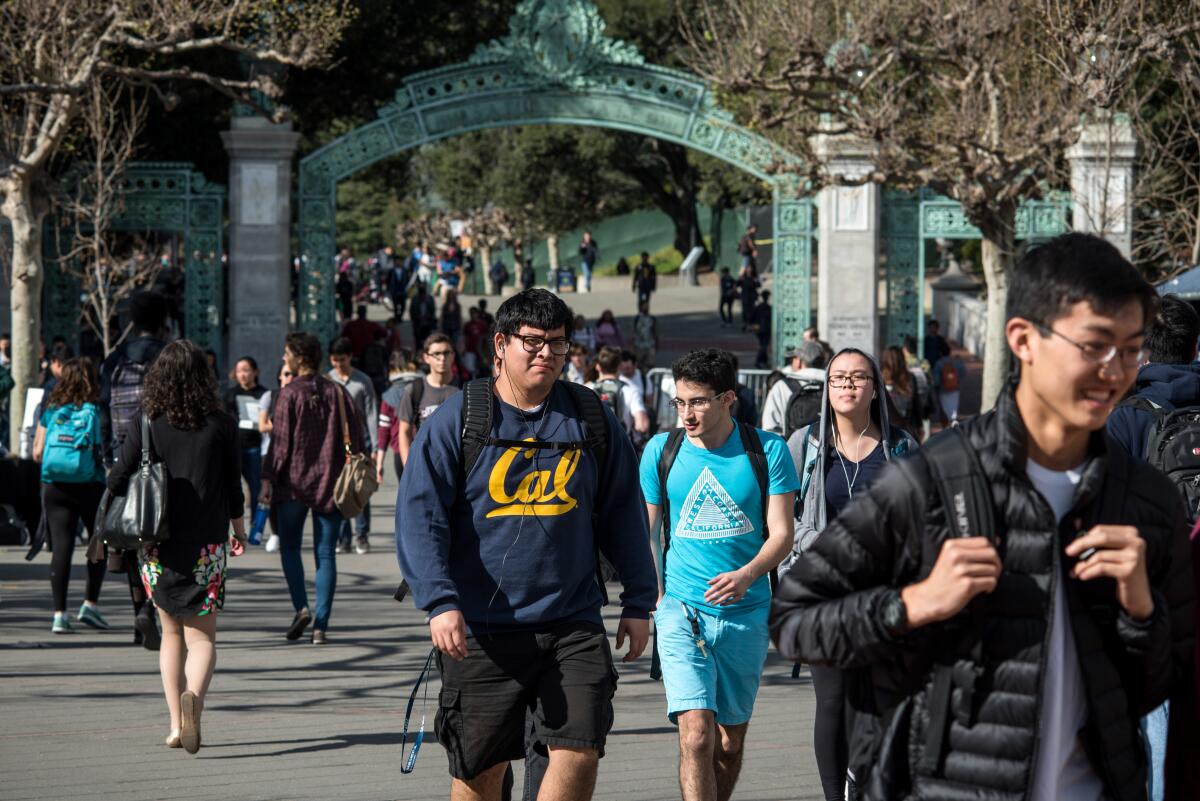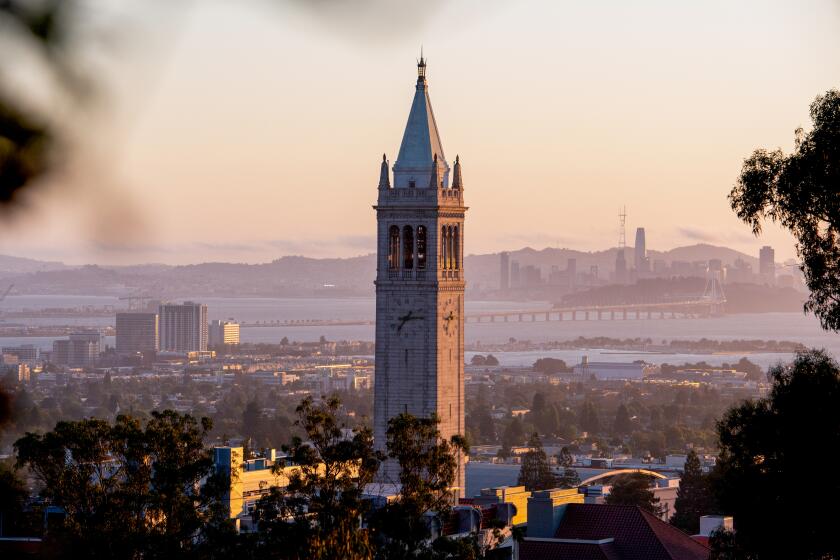UC Berkeley will increase California students, cut out-of-state ones to meet enrollment cap

- Share via
UC Berkeley will boost the number of Californians and significantly reduce out-of-state and international students this fall as it scrambles to meet a court-ordered enrollment cap for the coming academic year just a few weeks before admission decisions are set for release.
Overall, the campus plans to enroll about 5,370 first-year California students both in-person and online this fall, an increase of about 500 over last year. They would make up about 90% of all freshmen, compared with 70% last year. Among them, 4,370 would be enrolled on campus, while 1,000 would spend fall semester in remote classes and move to in-person instruction for spring semester beginning in January 2023, the university announced Friday.
California transfer students would number 1,964 for on-campus enrollment for fall. Among 650 students who will be deferred until spring, the vast majority will be transfer students from California community colleges. Students who graduate this year or leave campus for study programs abroad or in other cities will free up seats for those using remote instruction or deferred enrollment in the fall.
About 400 students who would otherwise be able to enroll will not be given a seat because of the enrollment cap. Most will be graduate students, officials said.
The university initially calculated it would need to cut 3,050 seats to meet the court demand to cap enrollment at 2020 levels. But the campus now says it will need to lower on-campus enrollment by 2,629 students.
A California Supreme Court ruling upholding an enrollment cap on UC Berkeley will force the campus to offer hundreds of incoming students admission for online classes for fall or deferred enrollment next spring.
Berkeley’s efforts to rejigger its enrollment plans were triggered by a court order to freeze its enrollment while the campus more thoroughly reviews the impact of its growth on housing, homelessness and noise. The University of California challenged the order, which came in a case filed by Save Berkeley’s Neighborhoods, a community group, but both an appellate court and the California Supreme Court rejected its appeal to stay the enrollment freeze.
Olufemi Ogundele, UC Berkeley’s assistant vice chancellor and director of undergraduate admissions, said he was pained by what the court order will mean for so many deserving students. Their lives, he said, are at the heart of the issue — not environmental reviews or litigation by a local neighborhood group.
“I’ve really been heartbroken by the amount of opportunity that’s going to be denied to students who should be here, who have worked really, really hard,” he said in an interview Friday. “We had a chance to read some really compelling applications. Students are coming out of some incredibly trying experiences, both from the community college level and at the high school level, and they persevered through that. And I think that for something like this at the 11th hour to limit our ability to offer decisions, it’s just something that is really, really heartbreaking.”
Ogundele said he is working with university deans to figure out which students in which majors would be invited to enroll in person, online or delay their start until spring. Given research showing that low-income students tend to do better with in-person instruction, he said such considerations would be “front and center” in planning enrollment options.
He added, however, that the online academic programs will also be top-quality.
“We’re actually feeling really confident about our ability to offer a world-class online experience for students, especially coming off the pandemic where we as an institution really strengthened our online muscle,” he said.
UC Berkeley said it would also create an “expanded wait list” in case legislators are able to craft a solution by May 1, when most students select their college.
But the university continues to express its dismay at the long-term impact of the court decision.
“To be clear, the harm caused by this court decision extends beyond the students who should be offered an in-person seat in our fall 2022 class,” a campus statement said. “It impacts prospective students generally, our campus operations and the university’s ability to serve students by meeting the enrollment targets set by the state.”
More to Read
Sign up for Essential California
The most important California stories and recommendations in your inbox every morning.
You may occasionally receive promotional content from the Los Angeles Times.












